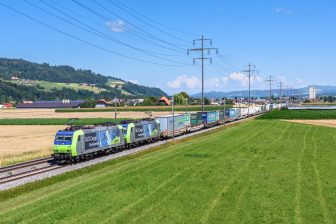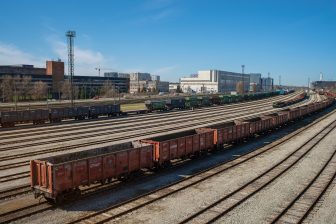
Containers in Duisburg: slight drop to Scandinavia, stable to China
In the first half of 2019, Duisburg intermodal terminal witnessed slight drop in container traffic compared to the same period of the previous year. This was caused mainly by the lower Scandinavian volumes. The container traffic going from and to China remain stable.
The small decline in Scandinavian volumes was a consequence of security-related restrictions to rail transport. As a result, Duisburg intermodal terminal, operated by Duisburger Hafen AG (duisport), handled container volumes of 1.96 million TEUs. In the same period of the previous year, the figure was 2.01 million TEUs. Thus, the decline was just around 2.5 per cent. Containers remain the main type of cargo for the facility. Its share accounts for around 55 per cent of the total freight traffic.
Chinese freight
In spite of the slight drop of Scandinavian volumes, container traffic to and from China is stable in Duisburg. Around 35 container trains run between duisport and several Chinese cities every week. Currently, Duisburger Hafen AG is working with partners in order to reduce the travel time of these trains. “duisport continues to view the China business as an important growth driver, hence its commitment in China along the Belt & Road corridors”, the company summed up.
Difficult environment
“After years of continuous growth, duisport now operates in an increasingly difficult environment”, Duisburger Hafen AG stated. The company noted that the total freight volumes of the terminal declined much more than the container volumes – by 5 per cent. The entire handling decreased from 32.6 million tonnes in the first half of 2018 to 31 million tonnes in the first half of this year.
Also, the company noticed that the global economic activity is slowing down, which will impact freight traffic in the future. Thus, the incoming orders for the export-dependent German industry dropped by 8.6 per cent in May 2019 compared to the previous year. Moreover, IMF expects that in 2019, the global GDP will be almost half of the 2010 figure.




